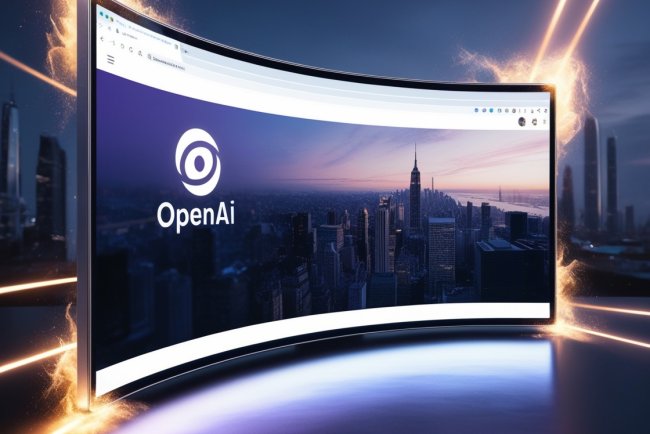OpenAI Funds Research to Develop Algorithms Predicting Human Morality
OpenAI funds research to train AI in predicting human moral judgments.

Introduction
OpenAI is taking a significant step toward creating more ethically aware AI by funding research focused on predicting human moral judgments. This research, hosted by Duke University and led by practical ethics professor Walter Sinnott-Armstrong, aims to explore whether AI can be trained to make decisions based on moral principles — a notoriously subjective and complex area.
Why OpenAI is Interested in AI Morality
Incorporating morality into AI is increasingly important, especially for applications in fields like medicine, law, and business, where ethical considerations frequently come into play. OpenAI’s interest lies in the potential for AI to make morally sound decisions that align with societal values. However, creating an AI that can handle complex ethical scenarios is far from straightforward. Morality often defies universal rules and varies widely across cultural, religious, and personal lines, making it a particularly challenging trait to encode into AI.
Details of the AI Morality Research Project
According to an IRS filing, OpenAI's nonprofit arm has awarded a grant to Duke University researchers for a project titled “Research AI Morality.” The grant is part of a larger, three-year, $1 million fund dedicated to creating a framework for “making moral AI.” Although details of the project are limited, it aims to develop algorithms capable of assessing morally relevant scenarios and predicting human moral judgments.
Walter Sinnott-Armstrong, known for his work in practical ethics, along with co-investigator Jana Borg, brings extensive experience in analyzing AI’s potential to serve as a “moral GPS” for humans. Their research has previously focused on ethically charged areas, such as prioritizing kidney donation recipients, to understand when and how AI might assist or even replace human moral decision-making.
The Challenges of Teaching AI Morality
Morality is highly subjective, shaped by factors like cultural context and personal beliefs. This subjectivity creates a unique set of challenges for researchers attempting to program AI to predict moral judgments. Machine learning models are essentially pattern recognizers: they learn from large datasets to predict outcomes or classify information based on past examples, but they don’t grasp abstract concepts like ethics, empathy, or fairness. As a result, even when trained on ethically labeled data, an AI might fail to understand the reasoning behind a moral decision.
For instance, AI can follow straightforward rules, like “lying is bad,” but struggles with nuanced scenarios where lying may serve a moral purpose, such as protecting someone from harm.
Previous Efforts in AI Morality
The Allen Institute’s Ask Delphi project in 2021 aimed to create an AI capable of making ethical judgments on moral dilemmas. While the tool initially provided reasonable answers, simple rewording of questions revealed its limitations. Ask Delphi could sometimes approve of morally unacceptable actions, underscoring the difficulty of achieving genuine ethical understanding in AI.
The flaws in Ask Delphi highlight a core issue in the quest to build moral AI: rephrasing or changing details of a question can dramatically alter AI responses, exposing gaps in comprehension that stem from the AI’s reliance on statistical patterns rather than true ethical understanding.
Ethical Biases in AI Models
AI systems trained on web data are prone to adopting biases present in the data itself. Since the internet largely reflects the views of Western, industrialized societies, the resulting AI models often display biases that favor these perspectives. This phenomenon was evident with Ask Delphi, which suggested that certain lifestyles were more “morally acceptable” than others, simply because these biases were embedded in the data.
These biases not only reflect the data but also limit the moral range of AI systems, which may fail to represent diverse or minority viewpoints effectively.
Philosophical Debates on AI and Morality
One significant question in the field of AI ethics is whether it’s possible — or even desirable — for AI to adopt a specific moral framework. Philosophical approaches to ethics, like Kantianism (which focuses on universal moral rules) and Utilitarianism (which seeks the greatest good for the greatest number), offer competing perspectives on moral action.
In practice, different AI models might favor one approach over another, potentially impacting the ethical outcomes of their decisions. For instance, an AI that leans toward Kantian ethics may refuse to break a rule even if doing so could prevent harm, while a Utilitarian AI might be more flexible.
Future Implications of AI with Morality Predictions
If successful, this OpenAI-funded research could lead to algorithms that make morally-informed decisions in areas where human input is challenging or even unavailable. Such advancements could benefit fields like healthcare, where morally-informed AI could help prioritize patients based on ethical guidelines, or in autonomous vehicles, where split-second decisions might carry moral weight.
However, there are concerns about whether a universally acceptable moral AI is achievable. Ethical standards vary widely, and the lack of a single ethical framework makes it difficult to ensure that AI morality would be broadly accepted. Additionally, the creation of moral AI raises concerns about accountability and agency: if an AI makes a morally questionable decision, who is ultimately responsible?
Conclusion
As OpenAI continues its investment in ethical AI, the Duke University research project stands at the forefront of exploring one of AI’s most complex frontiers. Teaching AI to predict human moral judgments is no small task, and the researchers are faced with challenges spanning technical limitations, cultural biases, and philosophical dilemmas. This work promises valuable insights, even if a fully morally-aligned AI remains a distant goal. For now, OpenAI’s funding is a crucial step toward a future where AI might assist, rather than hinder, ethical decision-making in society.
FAQs
-
What is OpenAI’s goal in funding AI morality research?
- OpenAI aims to develop AI systems capable of making decisions based on human moral judgments to ensure ethical alignment in fields like medicine, law, and business.
-
Who is leading the AI morality project at Duke University?
- The project is led by ethics professor Walter Sinnott-Armstrong and co-investigator Jana Borg, experts in practical ethics and AI.
-
Why is it difficult to create a moral AI?
- Morality is subjective and context-dependent, and current AI lacks true understanding of ethical concepts, often relying on patterns in biased training data.
-
What are the potential uses of a moral AI?
- AI could make ethically informed decisions in healthcare, law, and other fields, providing guidance in complex moral scenarios.
For further insights on AI morality, explore our resources on AI Ethics and Society and Emerging AI Trends.
What's Your Reaction?





















